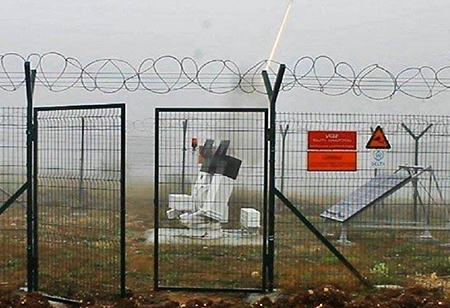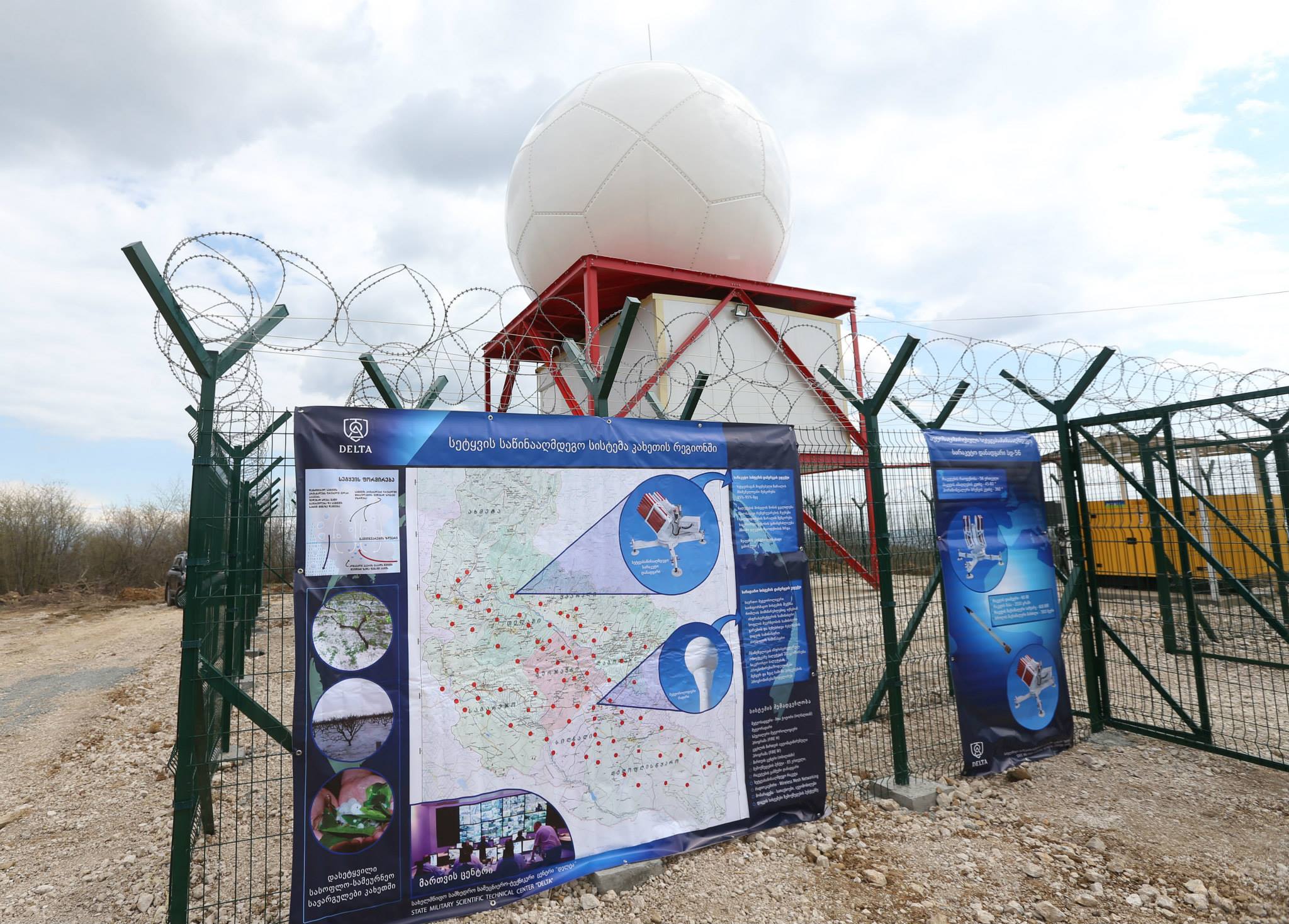Anti-hail rockets prevent hail, protect grapes in Kakheti

Over 100 anti-hail rockets were launched into the sky above Georgia’s winemaking region to prevent hail and reduce the effects of a major storm that threatened grapes and other crops.
A major storm over eastern Georgia’s Kakheti region yesterday seriously threatened crops, so 150 anti-hail rockets were launched into clouds crossing over seven villages, said the country’s Military Scientific-Technical Centre, DELTA.
On September 21 at 3pm the DELTA anti-hail net system fixed a hail cloud coming from the north-east to Kakheti. By 4.15pm the clouds had covered Dedplistskaro, Sagarejo, Sighnaghi, Telavi, Akhmeta, Lagodekhi and Kvareli villages,” said DELTA.
There was an 80 percent risk the clouds would generate heavy hail, bringing with it hails tones measuring 10-15mm, said DELTA.
After firing the anti-hail rockets, the clouds collapsed as rainfall.
Kakheti’s Governor Irakli Kadagishvili said yesterday’s bad weather caused major problems in Kakheti.
Strong wind has unroofed a residential building in Gurjaani town. Several houses have also been hit in Lagodekhi. … Trees were uprooted in some villages. All necessary actions were taken in time, and traffic was restricted only for several minutes,” Kadagishvili said.
He praised the quick use of the anti-hail system, which he believed had saved all of the grape crops in every village in Kakheti.

The anti-hail system worked by launching an unguided 60mm rocket into the air, which would disperse a reagent into the air to reduce hail from forming in the clouds. Photo by the PM's press office.
The anti-hail system was installed on Chorota Mountain in Kakheti last year. The firing points were managed from the mountain territory.
The anti-hail system worked by launching an unguided 60mm rocket into the air, which would disperse a reagent into the air to reduce hail from forming in the clouds. The rocket has the capacity to carry 50-70g of silver iodide reagent, officials noted.
When the rocket reached the appropriate height, the silver iodine reagent will be dispersed at an altitude of 2.5-4.5 km above ground for 30-35 seconds.
Due to the unstable weather in Kakheti, it is estimated 5,000 anti-hail rockets will be used in a 12 month period.
Hail has always been a major issue for people in Kakheti. Every year prior to now a large portion of the agricultural sector, particularly grapes, were completely destroyed by hail, leaving farmers with no crops.
The most recent largest hail storm in Kakheti was recorded in July 2012 when 100 percent of all crops were destroyed in several villages. Furthermore, hundreds of houses were left without roofs and many cattle died.
DELTA designed the revolutionary anti-hail system in 2015 and already the anti-hail system has proven to be successful.
 Tweet
Tweet  Share
Share